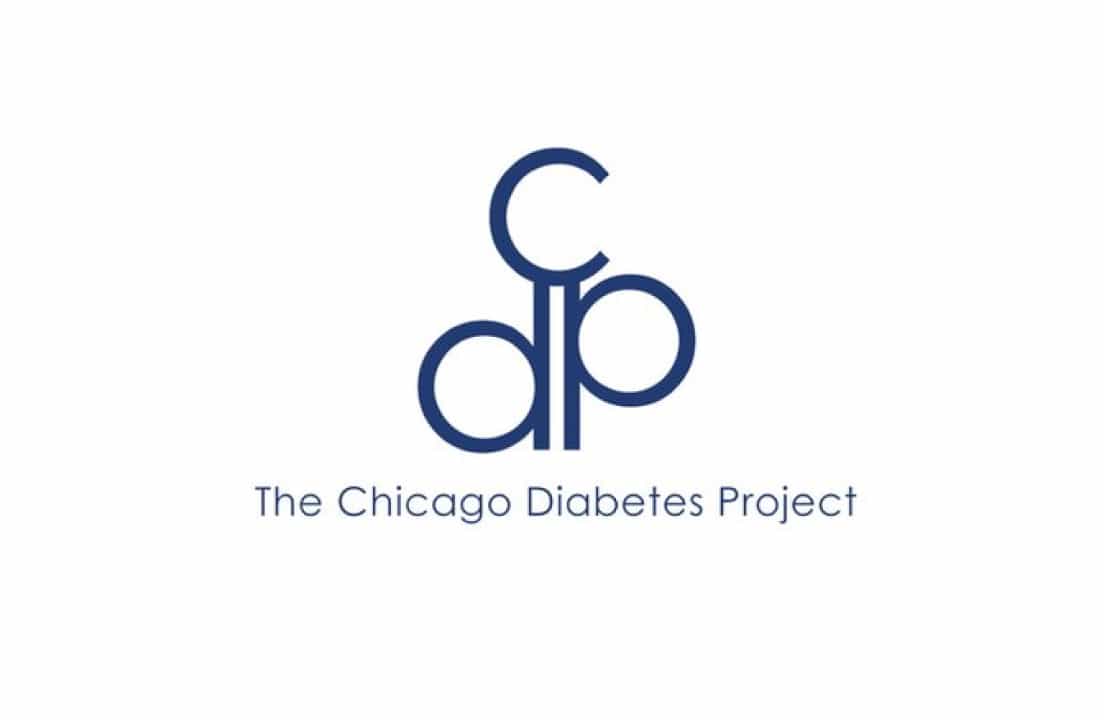T1D Guide
T1D Strong News
Personal Stories
Resources
T1D Misdiagnosis
T1D Early Detection
Research/Clinical Trials
9 Things Not to Say to Someone with Type 1 Diabetes
The number of horrible stories that rolled off people’s tongues was almost comical at times. And unfortunately, like how you can’t unsee scenes from a horror film, you can’t un-hear what you hear—no matter how false your rational mind tells you it is.

When my son Sam was diagnosed with type 1 diabetes at age four, he spent three touch-and-go nights in intensive care. He was in a diabetic coma with severe DKA (diabetic ketoacidosis). The doctors tried to reduce the swelling of his brain as they slowly fed him insulin to bring down his blood glucose level.
My husband and I were in our late thirties, both educated individuals with very little understanding of diabetes. We had no family history and knew nothing of the disease’s different types, causes, or symptoms. I remember when my husband called his work to tell them Sam was hospitalized. Someone told him, “My nephew has diabetes, and you know it stunts your growth.”
Aside from the fact this comment was extremely unhelpful to hear when our son is fighting for his life, it was incorrect! Diabetes does not stunt your growth—Sam is now over six feet tall.
Over the years, when I explained Sam had diabetes to people, I heard the most insensitive, shocking things. People would blurt out about how their uncle had his leg amputated or how they put down their dog with diabetes. A woman in my book club reminded me, “You can go blind from diabetes!”
I’m unsure if they’re simply indifferent to human suffering or just have no clue how their words affect others. I’ve also thought maybe they’re unaware of how to respond when someone confesses something personal, so they feel compelled to add their own antidote. The number of horrible stories that rolled off people’s tongues was almost comical at times. And unfortunately, like how you can’t unsee scenes from a horror film, you can’t un-hear what you hear—no matter how false your rational mind tells you it is.
So here are a few things not to say to someone with diabetes. You can think of them in your head and google them later—but please not out loud!
What Not to Say to Someone with Type 1 Diabetes
1. “You’re so skinny! How do you have diabetes!”
Here’s the skinny on diabetes—people of all shapes, sizes, and ethnicities can get diabetes. The harmful stereotype that only overweight individuals get diabetes needs to go away!
News flash: Thin people can get type 1 diabetes and type 2 diabetes. You can have high blood sugar even if you’re underweight. Moreover, people with type 1 often lose weight before diagnosis.
Unfortunately, there is a growing number of young people with type 1 diabetes who face eating disorders like anorexia and bulimia nervosa. If you’re struggling with this, you aren't alone. Seek help from your healthcare team and contact a support group near you.
.jpg)
2. “Maybe if you exercised, you could get rid of it?”
Increasing physical activity is good for everyone and extolls many health benefits, but no one, and I mean no one, wants to be told to exercise, except by your doctor, and even then, it’s not welcome news. Individuals with type 1 diabetes must control their blood glucose through insulin dosing. Equally important, exercise and diabetes is a tricky business of taking the right balance of food and insulin before working out to avoid hypoglycemia.
3. “You can’t eat that birthday cake. You have diabetes!”
Just as you wouldn’t comment to an overweight person for eating a doughnut, it’s not okay to question or give advice about what someone with diabetes eats or drinks. It’s NUNYA business! Moreover, they may be having a low blood sugar reaction and need sugar.

4. “How can you drink a beer? You have diabetes!”
It’s okay to drink alcoholic beverages if you have type 1 diabetes—in moderation. You need to know what is safe for you and know your own limits. Like most beverages, alcohol affects blood sugar levels, and heavy drinking may cause hypoglycemia up to 24 hours later. So, drink safely and talk to your healthcare team about what’s right for you.
5. “Have you tried the keto diet?”
The recent fad diet craze still generating steam is the keto diet, a low-carb, high-fat fare linked to weight loss, improved insulin sensitivity, and blood sugar levels. Lowering carbs induces the metabolic state of ketosis, where the body produces ketones that burn fat instead of carbohydrates. The National Institutes of Health suggests a ketogenic diet may benefit T1Ds and T2Ds. Talk with your healthcare team and do what’s right for you. It’s okay for your doctor to suggest it, but no one else!
Bottom line: Nobody wants to be told to go on a diet, period.
6. “If you ate a plant-based diet, you could cure your diabetes.”
I had a well-intentioned cousin send me loads of articles and podcasts on how a plant-based diet could reverse my son’s type 1 diabetes. Honestly, it may help some people reduce their insulin intake, but we never tried it. It wasn’t right for my son’s active lifestyle.
According to a case study published in the Journal of Diabetes and Metabolism, a plant-based diet rich in whole carbohydrates improves type 1 diabetes. Also, in 2011, the documentary Forks Over Knives advocated that a low-fat, whole-food, plant-based diet reverses many chronic diseases. Be careful how you approach people with diet suggestions. You may think you’re helping, but it can be a touchy subject.

7. “If I drink this Slurpee, I’ll get diabetes too.”
All diabetes jokes fall flat with me. Sorry, I just can’t find the humor in them. From Saturday Night Live through the years to the tweet from CrossFit CEO, Greg Glassman, saying Coca-Cola causes diabetes—these quips are ill-informed and unfunny. Put yourself in someone else's shoes and consider how you'd feel.
8. No diabetes story that ends with an amputation, blindness, nerve damage, or death.
I can tell you most T1Ds and mothers of kids with type 1 are fully aware of the complications associated with diabetes, so knowledgeable, in fact, they could probably write a 300-page dissertation on the subject. So restrain, refrain and choose your words wisely.
9. “I heard Halle Berry was type 1, and now she’s type 2.”
Halle Berry’s confusing comment from 2007 still sends ire through diabetes circles. No one can elevate or change their diabetes type. Type 1 diabetes can’t turn into type 2 diabetes. However, there is a condition called double or hybrid diabetes that affects about four percent of diabetes cases. According to the National Library of Medicine, some cases show signs of both type 1 and 2. If you truly have type 1, no miracle diet, exercise program, or cure is available to the public yet—but we are hopeful!
A little encouragement goes a long way.
On the flip side, I also heard some incredibly beautiful stories when my son was first diagnosed about type 1 individuals thriving! A friend’s husband just completed his third marathon. A woman’s daughter with type 1 just got into medical school. A research scientist whose son was diagnosed is now devoting his life to finding a cure. These were the types of stories I needed to hear, and every time I heard them, they lifted my chin a little higher.
I saw a quote the other day by Mary Anne Radmacher, “Courage doesn’t always roar. Sometimes courage is the quiet voice at the end of the day saying, ‘I will try again tomorrow.’”
That is how life is when you have a chronic illness or are the caretaker of someone with a disability. Each day is filled with challenges, some are small, and some are hard—ones that try to knock the wind out of us, but we have to keep going.
During those times, we have to pull deep, gather our strength from within, and when we can’t find it there, look around. Someone is usually willing to help if you ask, and maybe someone is there who needs help even more than you do. Sometimes a kind word, simple tweet, or smile can elevate someone’s day so much - that they’ll never forget it.


.webp)





.webp)
.jpg)
.jpeg)
.jpg)

.jpg)

.jpg)
.jpg)
.jpg)
.jpg)


.jpg)

.jpg)


.jpg)
.jpg)

.jpg)

.jpg)
.jpg)


.jpg)
.jpg)

.jpg)
.jpg)
.jpg)
.jpg)
.jpg)

.jpg)
.jpg)
.jpg)
.jpg)
.jpg)
.jpg)

.jpg)
.jpg)

.jpg)
.jpg)
.jpg)

.jpg)
.jpg)


.jpg)
.jpg)
.jpg)













.jpg)


.jpg)













.webp)





%20(1).png)




.jpeg)






.jpg)








.webp)